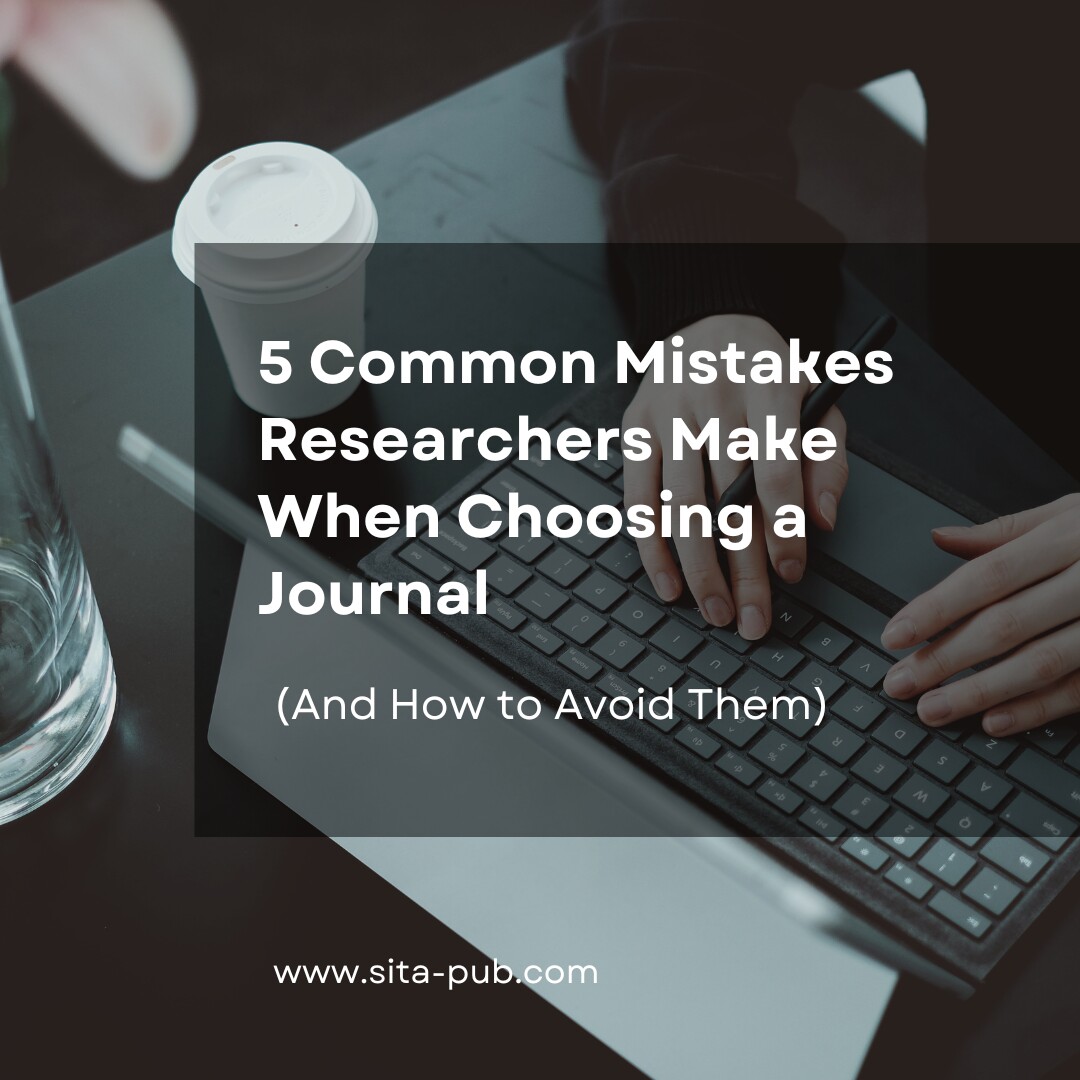5 Common Mistakes Researchers Make When Choosing a Journal (And How to Avoid Them)


Publishing a research paper is a significant achievement, representing the culmination of dedicated effort and scholarly pursuit. However, before submitting your work, a crucial decision lies ahead: selecting the appropriate journal. This choice can significantly impact the visibility, influence, and ultimately, the success of your research. A well-informed selection can ensure your work reaches the right audience, maximizing its impact and contributing to the advancement of knowledge.
This article aims to guide researchers through the journal selection process, highlighting five common mistakes to avoid and offering practical strategies for making informed decisions.

A common error is submitting a paper to a journal that does not align with its specific focus or target audience. Journals are curated to cater to particular disciplines, sub-fields, or research methodologies. Submitting a paper outside of a journal's defined area of expertise is likely to result in immediate rejection.
Solution: Thorough research is essential. Carefully review the "Aims and Scope" section of each potential journal, examining the types of articles they publish and the research areas they prioritize. Additionally, review recent publications in the journal to gain a deeper understanding of its editorial preferences and the type of research it values.

Each journal has specific formatting requirements, word limits, and submission guidelines. Ignoring these guidelines can lead to immediate rejection, regardless of the quality of the research.
Solution: Before submitting your manuscript, meticulously review the journal's submission guidelines. Pay close attention to formatting specifications, including font type, margins, and citation style. Adherence to these guidelines demonstrates professionalism and respect for the journal's editorial standards.

Impact factor is a metric used to assess the influence and prestige of a journal. It reflects the average number of citations received by articles published in that journal over a specific period. While not the sole determinant of journal quality, impact factor can be a valuable indicator of a journal's reach and influence within the academic community.
Solution: Research the impact factor of each potential journal and compare it to others in your field. Consider your research goals and the level of impact you seek. A higher impact factor generally indicates a wider audience and greater potential for your research to be cited and influential.

The peer review process is a critical component of academic publishing. It involves subjecting manuscripts to rigorous evaluation by experts in the field. Researchers often underestimate the intensity of this process, assuming acceptance is a straightforward outcome.
Solution: Understand the journal's peer review process, including the typical turnaround time and the level of scrutiny involved. Be prepared for revisions and feedback, as this is a common part of the publication process. A positive attitude towards constructive criticism and a willingness to revise your manuscript based on reviewer feedback are essential for publication success.

While prestige is a factor to consider, it should not be the sole basis for journal selection. Choosing a journal solely based on its reputation without considering other factors like readership, relevance to your field, and your own research goals can lead to a mismatch between your work and the journal's audience.
Solution: Prioritize journals that align with your research area, offer a suitable audience for your work, and have a track record of publishing high-quality research. Consider the journal's readership and its potential to reach the specific audience you wish to engage.
Choosing the right journal is a crucial step in the publication process. By understanding the intricacies of journal selection and avoiding common pitfalls, researchers can increase their chances of success and ensure their research reaches the appropriate audience, maximizing its impact and contributing to the advancement of knowledge.
Want to get your research published? Let SITA Academy help you find the perfect journal! Just tell us your field of study and the title of your research paper, and we'll send you a list of recommended journals that are a great fit for your work. We'll make sure your research reaches the right audience, so you can maximize your impact.
If you have any questions, inquiries, or would like to learn more about our services, please don't hesitate to reach out to us. Our dedicated team is ready to assist you.